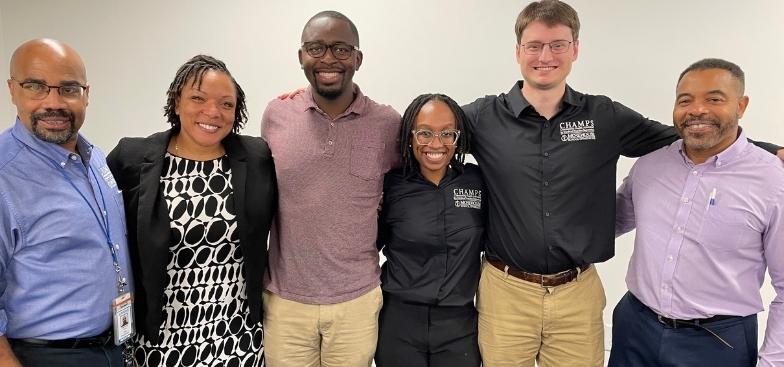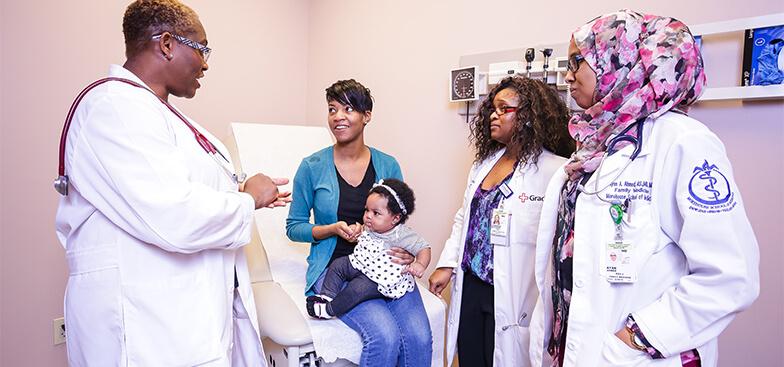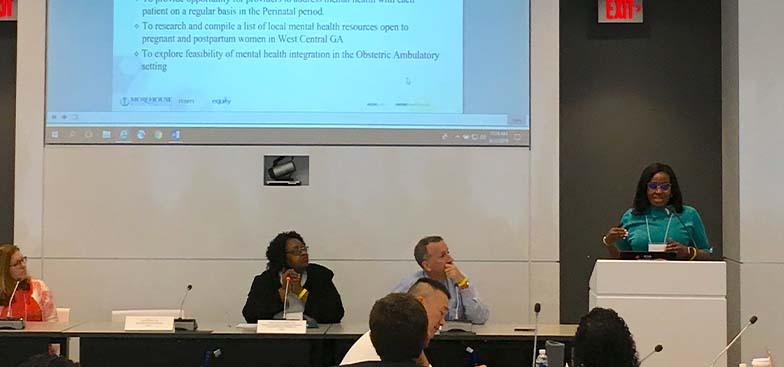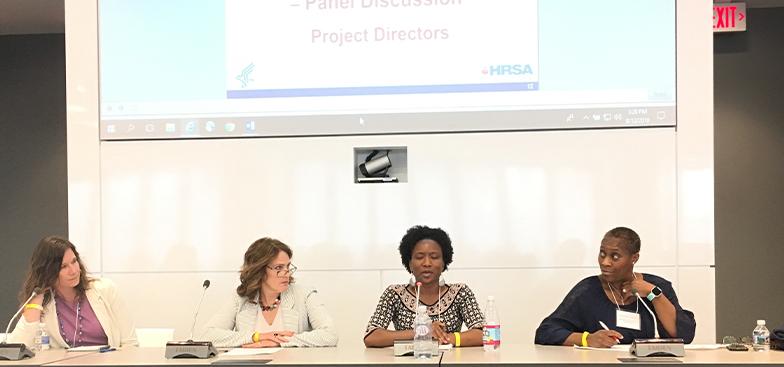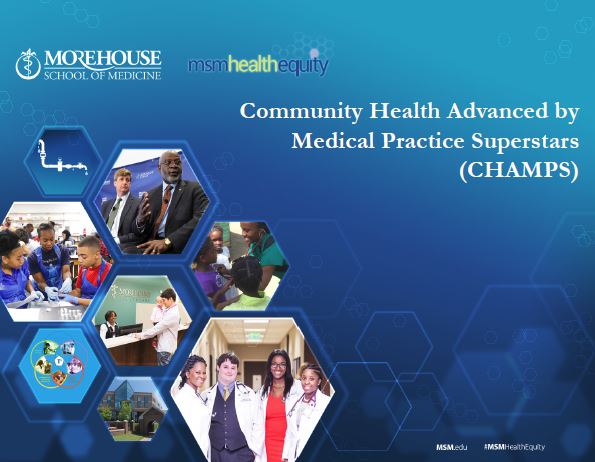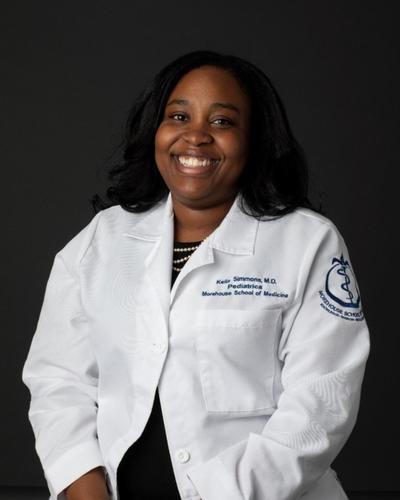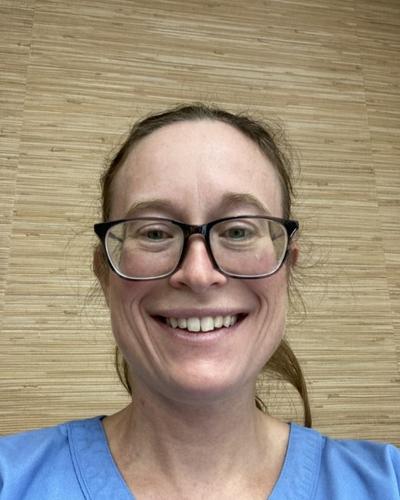Are you a family medicine, internal medicine or pediatric physician or PA who wants to be a healthcare superstar? Are you ready to advance your leadership skills? Are you ready to be a thought-leader? If the answer is yes, then we welcome you to apply for the Morehouse School of Medicine Community Health Advanced by Medical Practice Superstars (CHAMPS) Transformational Leadership Fellowship to gain leadership skills and expertise in transforming your practice and your community.
CHAMPS is a year-long Health Resources and Services Administration (HRSA) funded fellowship that educates and empowers early to mid-career physicians and physician assistants, practicing in medically underserved areas, rural communities, and federally qualified health centers (FQHC’s) who are currently in emerging leadership roles. After completing this program, participants will be ready to lead change and advocate for health equity within their institutions, surrounding communities, and at the local, state, and national levels
Purpose

This program strives to strengthen primary care and the healthcare workforce by establishing fellowship programs to train practicing community-based, primary-care physician and/or physician assistant champions to lead health care transformation and enhance teaching in community-based settings. Characteristics of transformed healthcare delivery systems identified by the Centers for Medicare and Medicaid Services include:
- Integrated or virtually integrated delivery models across the care continum;
- Coordinated care across all providers and settings;
- A high level of patient engagement and quantifiable improvements in patient experiences;
- Leveraging the use of health information technology to improve quality;
- Providers performing at the top of their license and board certification;
- Integration of population health measures into the delivery system: and
- Data-driven health system processes.
HRSA also recognizes addressing social determinants of health as a characteristic of transformed healthcare delivery systems.
Objectives
- Develop leadership capacity in healthcare transformation for primary-care professionals;
- Increase integrated and coordinated care services within and between care settings;
- Improve the quality of care in healthcare organizations; and
- Increase patient access to care.
Benefits
HRSA will provide physicians and physician assistants who have completed Primary Care Transformation Executive (PCTE) fellowships with priority status when applying for National Health Service Corps (NHSC) Loan Repayment (LRP) awards. Participants in the NHSC LRP, NHSC Scholarship Program, and NHSC Students to Service LRP interested in participating in a PCTE primary-care leadership fellowship program may convert to a half-time contract and continue satisfying their service obligation.
Each fellow will:
- Earn CME through leadership, integrated health, and quality improvement course instruction
- Engage in practical leadership and quality improvement instruction through virtual, clinic, and in-person site visits
- Participate in monthly coaching sessions by MSM faculty and related SMEs
- Complete a healthcare transformation project with a focus on one of the three HHS priorities — childhood obesity, mental health and opioid abuse — to benefit your practice and community
- Build leadership skills that strengthen change processes in organizations
- Receive support in presenting and publishing their Healthcare Transformation Project (HTP)
- Join a network of CHAMPS fellows to serve as mentors to future CHAMPS superstars
CHAMPS 2022 - 2023 Fellow Bios
Apply
Applications are currently being accepted for the 2023-2024 Cohort. Please apply online below.
For more information contact Christopher Ervin, M.D. or Krystle Richardson.
This project is/was supported by the Health Resources and Services Administration of the U.S. Department of Health and Human Services under Grant #T13HP31903, Primary Care Training and Enhancement: Training Primary Care Champions for $1,985,744. This information or content and conclusions are those of the author and should not be construed as the official position or policy of, nor should any endorsements be inferred by HRSA, HHS or the U.S. Government.

